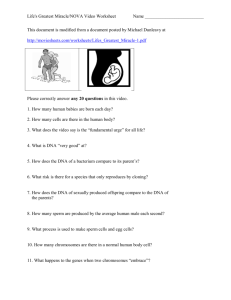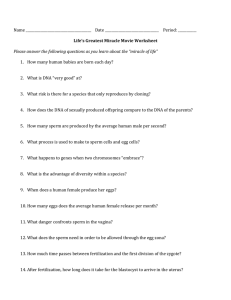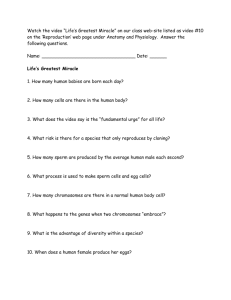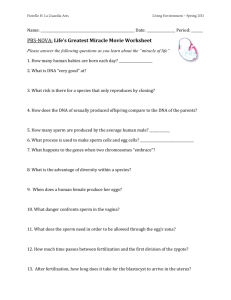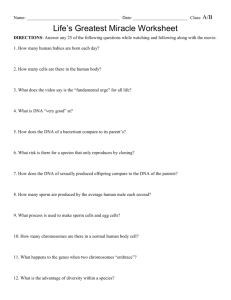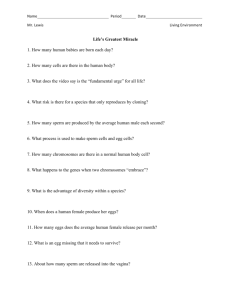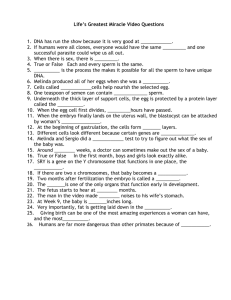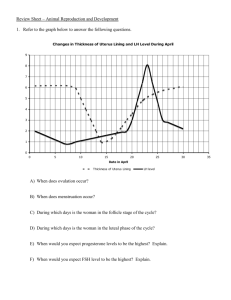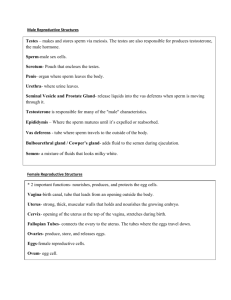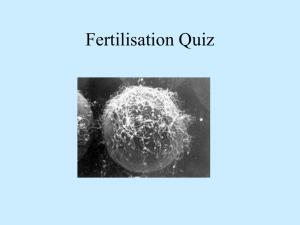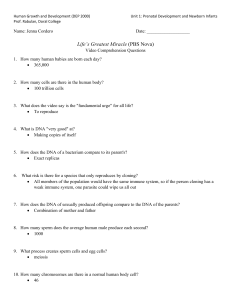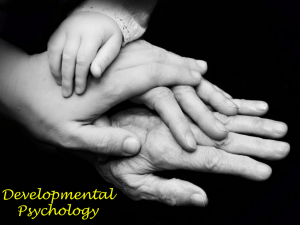Movie Worksheet
advertisement
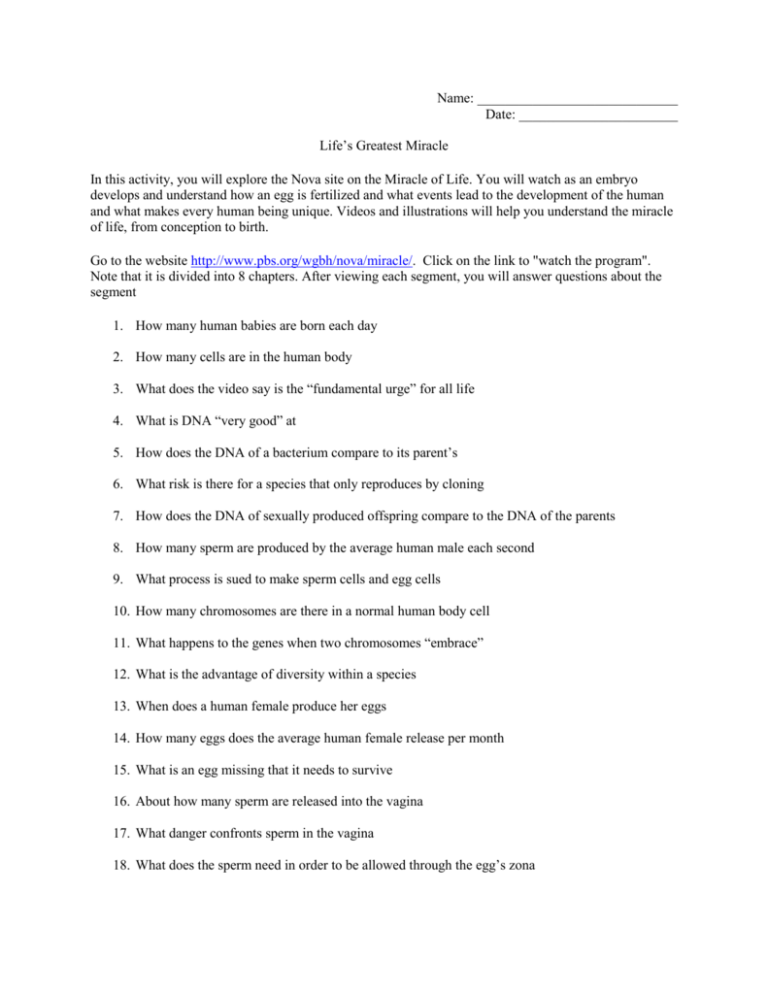
Name: _____________________________ Date: _______________________ Life’s Greatest Miracle In this activity, you will explore the Nova site on the Miracle of Life. You will watch as an embryo develops and understand how an egg is fertilized and what events lead to the development of the human and what makes every human being unique. Videos and illustrations will help you understand the miracle of life, from conception to birth. Go to the website http://www.pbs.org/wgbh/nova/miracle/. Click on the link to "watch the program". Note that it is divided into 8 chapters. After viewing each segment, you will answer questions about the segment 1. How many human babies are born each day 2. How many cells are in the human body 3. What does the video say is the “fundamental urge” for all life 4. What is DNA “very good” at 5. How does the DNA of a bacterium compare to its parent’s 6. What risk is there for a species that only reproduces by cloning 7. How does the DNA of sexually produced offspring compare to the DNA of the parents 8. How many sperm are produced by the average human male each second 9. What process is sued to make sperm cells and egg cells 10. How many chromosomes are there in a normal human body cell 11. What happens to the genes when two chromosomes “embrace” 12. What is the advantage of diversity within a species 13. When does a human female produce her eggs 14. How many eggs does the average human female release per month 15. What is an egg missing that it needs to survive 16. About how many sperm are released into the vagina 17. What danger confronts sperm in the vagina 18. What does the sperm need in order to be allowed through the egg’s zona 19. How much time passes between fertilization and the first division of the zygote 20. What happens if the dividing zygote accidentally separates into two 21. After fertilization, how long does it take for the blastocyst to arrive in the uterus 22. What risk does the blastocyst face after it attaches to the uterus 23. What is gastrulation 24. What will the lower layer of cells develop into 25. What will the middle layer of cells develop into 26. What will the outer layer of cells develop into 27. How long is the embryo after 4 ½ weeks 28. What does a gene do when it is turned on 29. What do the following proteins do a. Collagen b. Crystalline c. Actin and myosin d. Hemoglobin 30. How is the Y chromosome different from the X chromosome 31. Where specifically does the baby get its nutrients from 32. How old is the fetus when it gains the ability to hear sound 33. What is the main job of the fetus during the last trimester 34. What does the myolin do 35. Why is birth more dangerous for humans than for other animals The birth of the baby will take place at 4:25 during Chapter 8: The Third Trimester. If you don’t wish to watch, now would be a good time to look away
